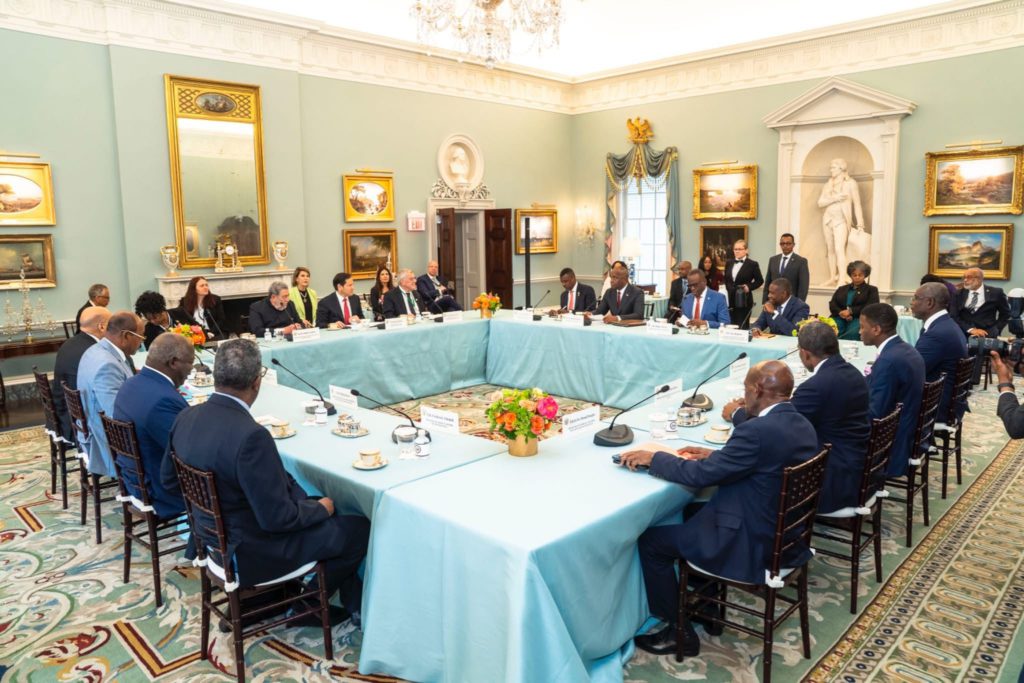Prime Minister Drew Pushes Geothermal Vision as U.S., OECS Discuss Regional Agenda
Washington, D.C., May 6, 2025 — In a significant step toward strengthening U.S.–Caribbean relations, Secretary of State Marco Rubio met with the Heads of Government of the Organization of Eastern Caribbean States and The Bahamas, in Washington, D.C., for high-level discussions focused on regional security, energy resilience, economic development, and migration.
The meeting marked Secretary Rubio’s first formal engagement with the Eastern Caribbean as U.S. Secretary of State underscored the U.S. Administration’s intent to prioritize continuous and respectful dialogue with Caribbean partners. He emphasized the strategic importance of the region to the United States, reinforcing a shared commitment to democratic values, security, and mutual prosperity.

A central theme of the discussions was energy security, with leaders expressing the urgent need to reduce high electricity costs, expand renewable energy investments, and modernize critical infrastructure. Secretary Rubio acknowledged these concerns and signaled U.S. support for initiatives that enhance energy resilience while cautioning against overdependence on partnerships that may present long-term vulnerabilities.
Prime Minister of Saint Kitts and Nevis, the Honourable Dr. Terrance Drew, used the opportunity to underscore the Federation’s geothermal energy ambitions, positioning the Saint Kitts and Nevis as a potential renewable energy hub for the subregion. He emphasized that affordable, sustainable energy is not only a development necessity but a foundation for economic transformation, job creation, and youth opportunity. Noting the geographical proximity of U.S. territories such as Puerto Rico and the U.S. Virgin Islands, Dr. Drew called for a deeper partnership with the United States—one that reflects the strategic neighborhood the Caribbean represents and the enduring relationship with the United States prior to and post the formalization of diplomatic ties forged on the Federation’s political independence.
The dialogue also addressed concerns around transnational crime and border security, with the U.S. and the OECS Heads advocating for stronger intelligence sharing and regional coordination to combat gun trafficking and organized criminal networks. Secretary Rubio reiterated U.S. backing for multilateral efforts to restore stability in Haiti and highlighted ongoing U.S. humanitarian support to the region.
Leaders used the opportunity to seek closer cooperation on climate resilience, food and health security, migration protocols, and more equitable U.S. visa and repatriation policies. They also advocated for stronger U.S. collaboration with regional institutions such as the OECS, RSS, and CDEMA.
Secretary Rubio reaffirmed the U.S. commitment to foreign assistance that aligns with local priorities.
The meeting concluded with a shared resolve to advance a forward-looking partnership that addresses both long-standing issues and emerging challenges across the Americas.

